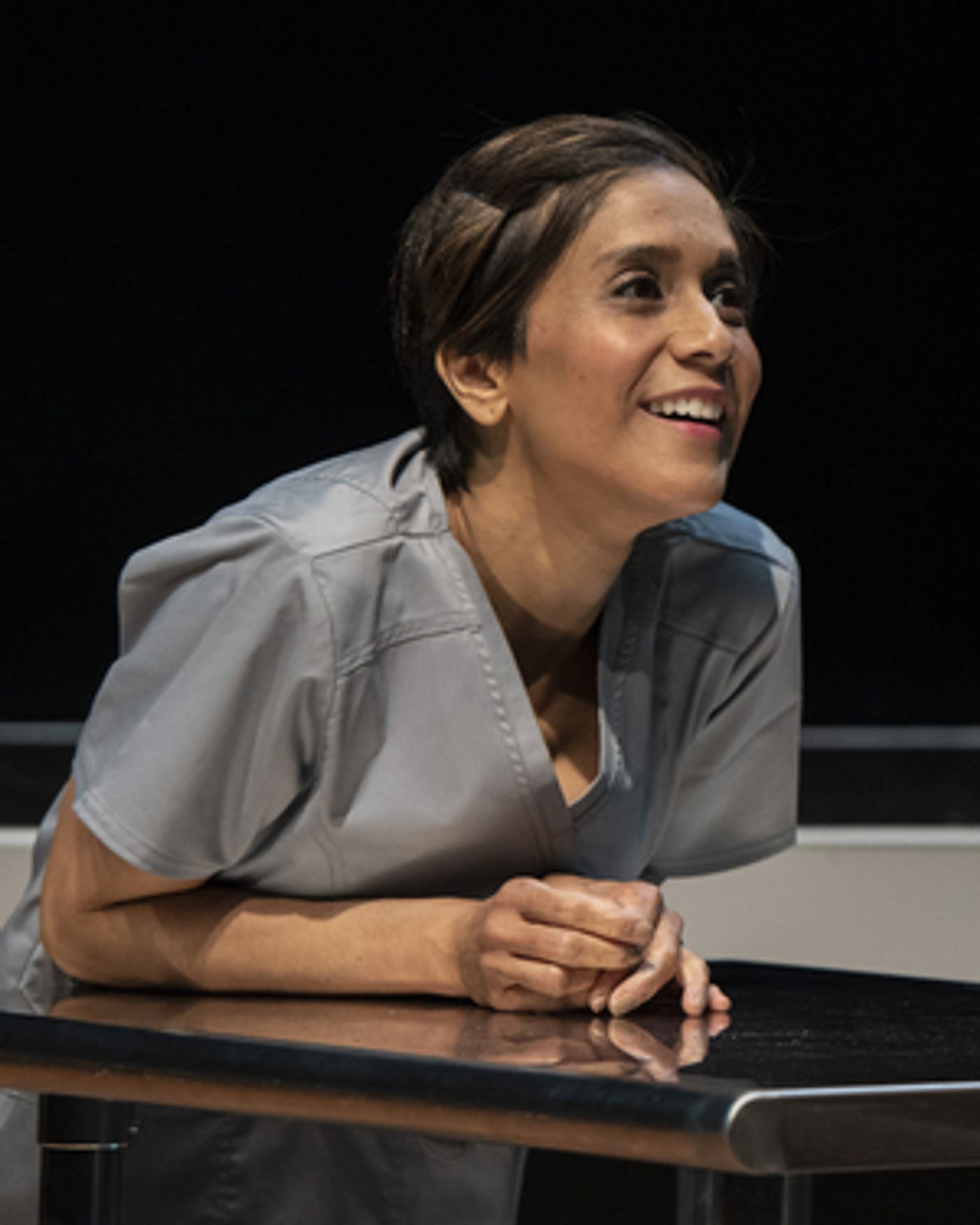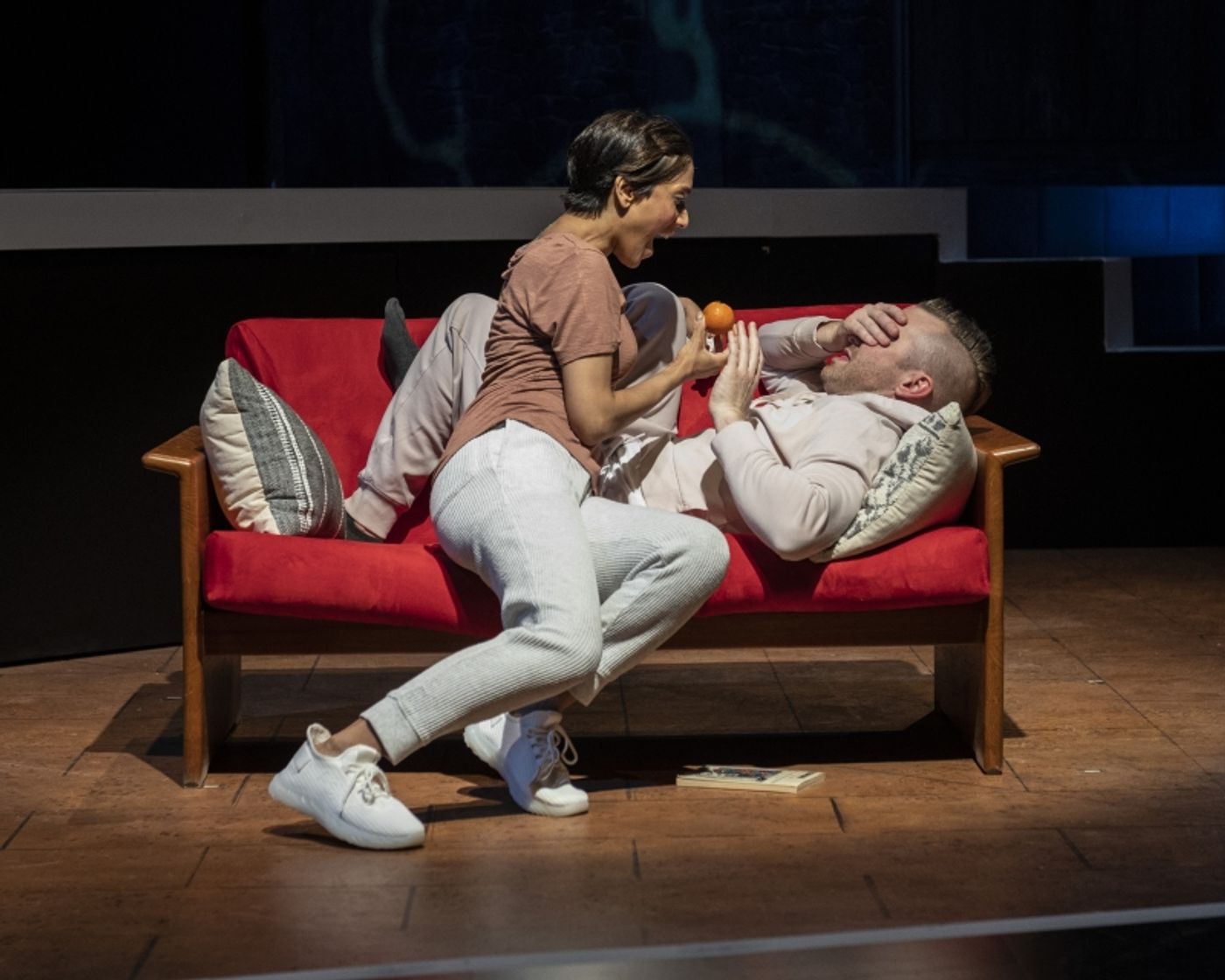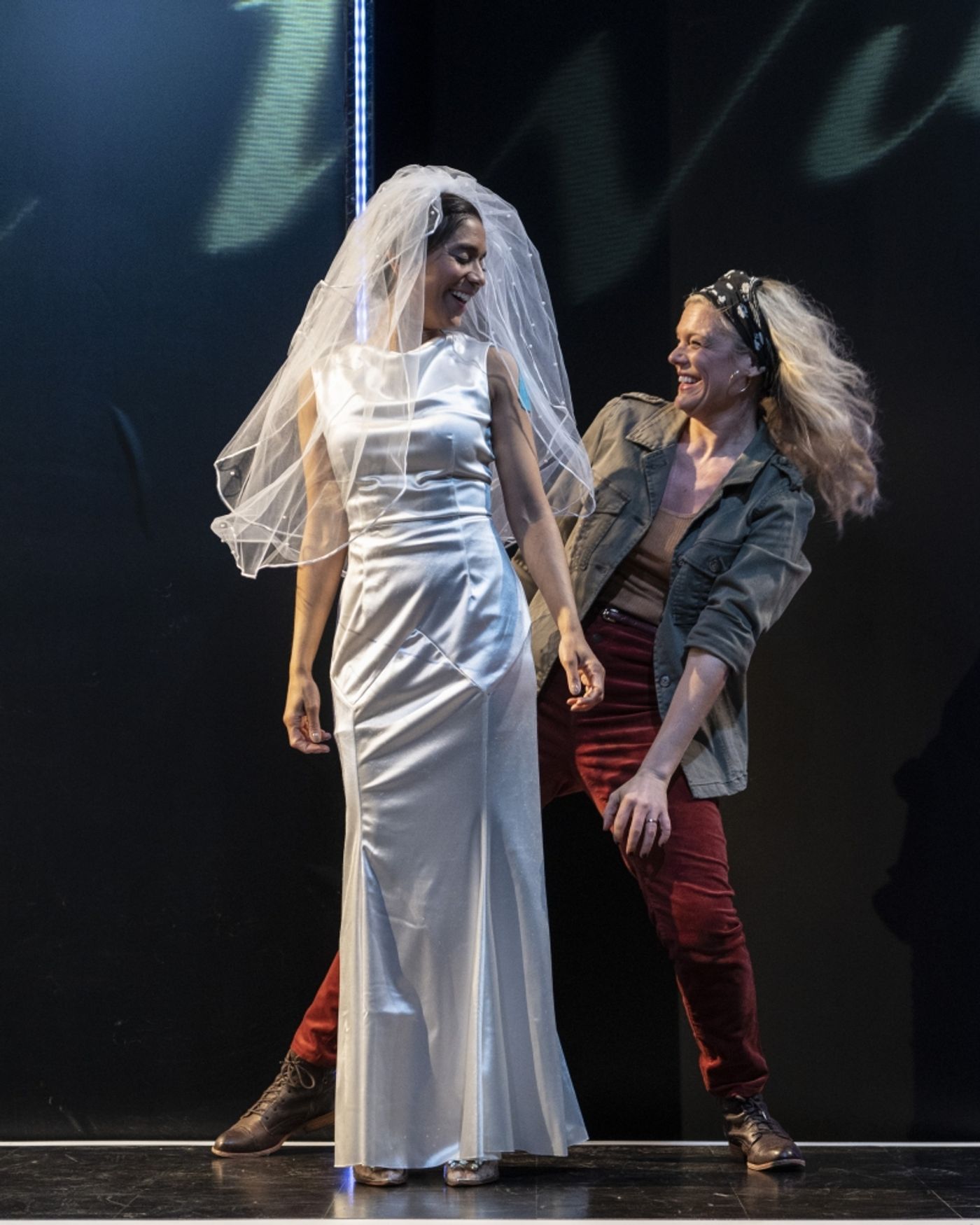Review: THE PHLEBOTOMIST at 1st Stage
'The Phlebotomist' is a fascinating look into how the world could be in the not-too-distant future, and it raises all the questions good science fiction can.

When I was on my college Bioethics Team (for those of you who are new here, I am - and always have been - a massive nerd), I read renowned bioethicist Arthur Caplan's 2007 book Smart Mice, Not So Smart People. One essay struck me in particular: "Brain Enhancement." The piece examined the long-term possibilities of genetic mapping and manipulation, specifically as it could apply to parents attempting to give their children a leg up in our increasingly competitive world. Caplan likened gene editing to the many other advantages parents already purchase their children - private tutors, prep courses, specialty camps, etc. In a world where gene editing is the norm, Caplan only sees equity as a concern, not the practices themselves; he saw it as the logical next step for our society, arguing that it's the normal course of human nature to want to encourage improvements. The essay, understandably, sparked considerable controversy within the ethics and medical communities - many found Caplan's position to be far too cavalier. Opponents pointed out that the nuances within practices were just as important to discuss - even if gene editing becomes more widely possible, who determines what is acceptable to change, and what isn't? If the target is to remove serious disabilities and disorders - a goal that is in itself questionable - who determines what constitutes as "serious" enough to qualify? Caplan's position doesn't only apply to life-threatening cases, like cancers and Cystic fibrosis, but also to cases that threaten quality of life, and the range of quality is a very broad spectrum.
Enter The Phlebotomist, Ella Road's 2018 Oliver-nominated play, and 1st Stage's latest production. The Phlebotomist is a science fiction play in which the world Caplan saw emerging has been realized: gene mapping, encouraged by the NIH and other medical institutions, has developed to a point where it is possible to map and understand entire genomes almost instantly. The practice began as a means of allowing doctors to better diagnose and treat their patients, but the availability of such vital information is tantalizing; it's not long before mapping becomes so common that a ranking system is developed by economists, and entire industries restructure around this information - from dating apps to job qualifications to immigration policies. Within this world, we meet Bea Williams, a hospital phlebotomist with a 7.1 ranking. Bea appears to have fainted, despite her insistence that she doesn't faint, and the blood samples she's collected for testing have scattered all around the hall. A charming man checks on her, and helps cover for her in front of other hospital staff as she quickly collects and reorganizes the samples. He introduces himself as Aaron Tennyson, a distant relation of her favorite poet, Alfred Lord Tennyson, and asks her out. Aaron has ambitions to work as a barrister in the city, a position that requires a minimal ranking of an 8.5; his charm and rank impress Bea, and the two begin dating. Meanwhile, Bea's closest friend, Char, is also applying for a job in the city, but is worried about her ranking after losing her father to Huntington's Disease. Bea is forced to break the heartbreaking news to her friend - not only is her ranking low, but she's likely to develop symptoms within a few years, and succumb to the illness within the next decade. Char asks Bea to help her delete and falsify her file, insisting she wants to be able to do some good in the world with the time she still has. Bea initially objects, but eventually relents. From there, she starts a side business helping others with low rankings obtain "superior" blood to improve their societal standings. Although she and Aaron don't put much stock in the system, she finds the money enticing, especially since she had little while growing up and inherited a mountain of debt from her family. Still, she hides her business from Aaron, even as they move in together, wed, and discuss having a child. Meanwhile. Char quits the job she worked so hard to obtain in order to become an activist for low-rated people, referred to as "subs."

The reason I brought up Caplan in the opening of this review is that part of The Phlebotomist's impact comes from how realistic it is - this world - and the scenarios we watch on this stage- isn't an impossibility in our lifetimes. Between the presence of early forms of the technology utilized and the show's references to shortages of water and fresh produce, it's not a far leap from our current society to the one we see play out on the stage. Part of what makes this production so effective is how eerily realistic it is - as the audience follows Bea's story and the vignettes between scenes showing other aspects of the society (dating testimonials, news reports, advertisements for programs - and scams - that help people increase their and their children's ratings, etc), it's easy to recognize the roots of these situations in our own society, and to understand how quickly this could become our reality. Caplan saw it as inevitable a decade and a half ago, and the world Road built in her play feels all too close to the one we live in now.
Part of this sense of closeness comes from the relatable performances from the cast. As Bea, Lynette Rathnam is the heart of the show. She portrays Bea's painful past, hopes for the future, and internal struggles in the present equally well, creating a balanced, complicated person; even at Bea's worst, it's hard not to sympathize with her because Rathnam's portrayal is so relatable and human. Josh Adams' Aaron is a mix of charm and suspicion - in his early scenes with Bea, Aaron is sweet and it's easy to get caught up in their romance, but his descent into a less certain, less stable person is fascinating to watch. We see his confidence slip along with the veneer of perfection, and by the time his confession in Act II comes about, it feels more like a puzzle piece clicking into place than a surprise because Adams leads us directly to that moment. Char, played by Anne Bowles, goes through a similar progression, starting out as the close, supportive friend who's also ambitious and determined, but as "rateism" (prejudice against those of lower ratings) increases, we watch her struggle with her place in the world and her own deteriorating state; it's unfortunate that it puts her at odds with Bea, because the chemistry between Bowles and Rathnam in the early scenes of their friendship is delightful, though their sparring is also fascinating to watch. Rounding out the cast is Sasha Olinick, as David, the high-rated porter who chose to find a job, partner, and life that fulfilled him rather than matched his genetic ranking; Olinick's David almost serves as a foil to the messages the rest of the world around them is determined to send, and his cheerful disposition stands in stark contrast to the dystopian society around him.

The cast is surrounded by a utilitarian black set (the work of Kathryn Kawecki), adapted by Patrick W. Lord's scene-setting projections, bringing the audience from the halls of the hospital and Bea's office to the Irish seaside and Bea and Aaron's increasingly elaborate apartments. Scene transitions also play a vital role in this production; projections and voiceovers are utilized to provide greater world-building, giving the audience a peek into the world in which Bea's story takes place. The projections are on two side walls and a back wall; the two sides are each visible to their opposing side of the audience, which was fine since they often aligned, though this was occasionally frustrating in the few cases when they differed. One thing that was particularly well done with the scene transition voiceovers at the opening and close of the show is that they're nearly identical portrayals of the same person being brought into the hospital, but the main difference in outcome is their rating, giving the audience a fuller sense of the way things change throughout the production. Director Alex Levy creates a convincing world with small touches like this, as well as the decision to keep the production set in England with the help of Dialect Coach Christine Hirrel.
The Phlebotomist is a fascinating look into how the world could be in the not-too-distant future, and it raises all the questions good science fiction can: how would we react in these characters' situations? What can we do if (when) society prescribes value to something outside of our control, or attempts to give us the ability to control things we always considered inherent to ourselves and those we love? What does love look like in the face of these technologies? The fact that The Phlebotomist ends on such an unresolved note gives audiences the ability to ponder these questions as they leave the theater. 1st Stage's production does the complex tale justice, and ensures that people will continue to ruminate on these topics for a long time - as we all should.
The Phlebotomist plays at 1st Stage through March 6th. Run time is approximately two and a half hours, with one ten-minute intermission. Content warning for discussions about suicide and mental illness. Tickets are available on the 1st Stage website.
Reader Reviews
Videos

